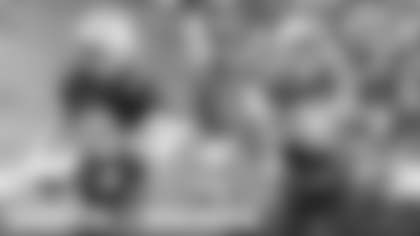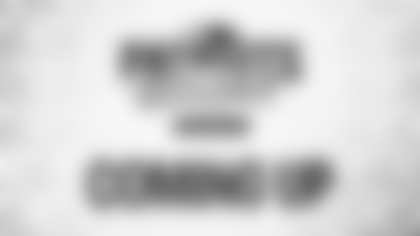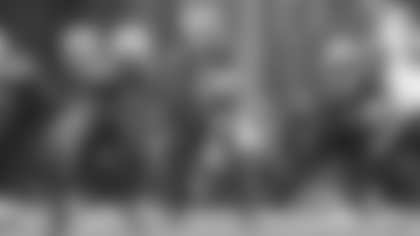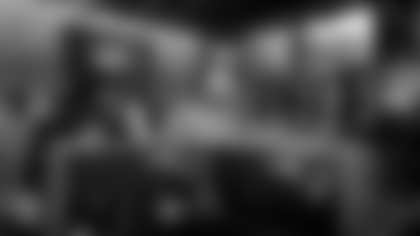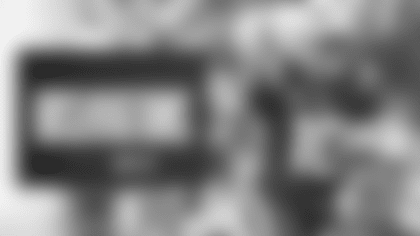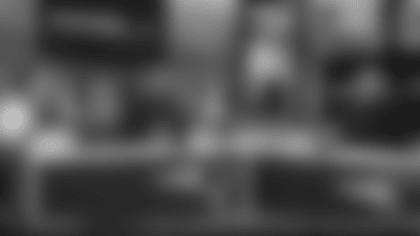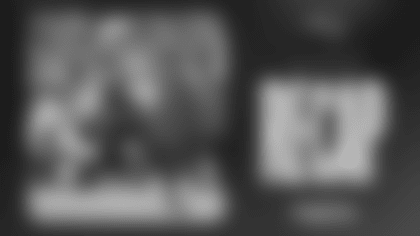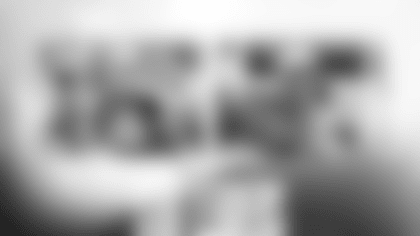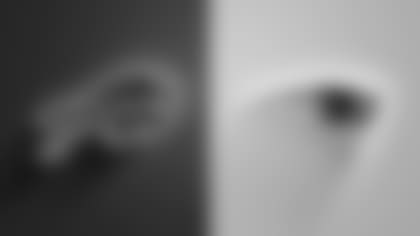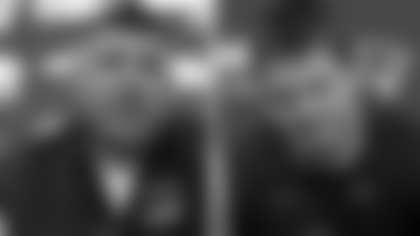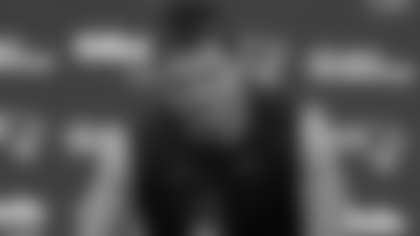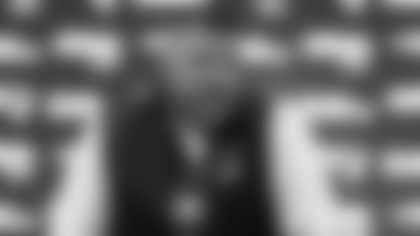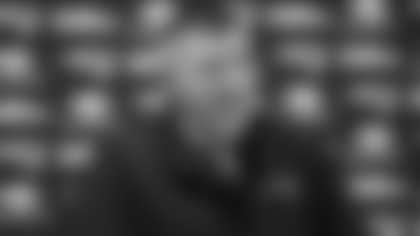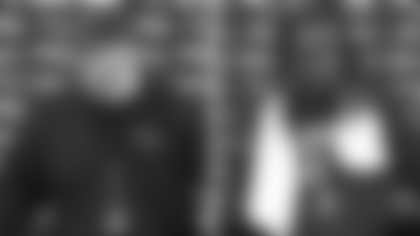A team of NFL referees attended Patriots training camp today and gave a noon presentation to the media during which they detailed rule changes for the upcoming season. In addition to a number of rule changes that will take affect this year, the league has also decided to re-emphasis several existing rules.
The league has chosen to alter the format surrounding Replay Review for the next five seasons. The most important change can be seen in the Coaches Challenges. Before this year's changes, teams were given two challenges per game. The penalty for an unsuccessful challenge was, and will remain, the loss of a timeout. However, under the previous set of rules, there was no reward afforded a team that challenged successfully. Beginning this season, a team that challenges successfully on both attempts will be awarded a third challenge. Following existing rules, there will be no challenge allowed for a team without time-outs, even if the team's previous two challenges were successful.
In situations where the kicking team is offside during a free kick, the receiving team will now have a new option. Depending on how they gauge the success of their return, the returning team can elect either for a re-kick, in which case the kicking team will move back five yards, or they can take the penalty from the spot they returned the ball to, moving five yards forward. The reason given by the league for this rule change is that it "avoids a re-kick in certain situations where adding yardage to the end of the play is more advantageous to the offended team." Also, it "saves time and avoids potential of injury if there is a re-kick."
Another rule change related to the kicking game will be seen in cases where a ball kicked from scrimmage touches down in the end zone. Under existing rules, as long as the ball is still moving it can be played. This scenario creates confusion in many ways. Often times, players on the sideline will assume the ball is dead and head out onto the field, only to find that a savvy return man has scooped up the ball at the last second and started up field. Under the new rules, as soon as the ball touches down in the end zone it is a dead ball, and the play is over. The ball can still be played by a player in or out of the end zone, as long as the ball has not yet touched the ground.
In regards to end-of-half and end-of game situations, the league has added one scenario under which play does not necessarily end. Currently, if the defense commits a penalty on the last play of a half, the offense is allowed another play, whereas if the offense commits a penalty on the final play, time generally expires. Traditionally, exceptions to that rule have included situations where the offense illegally touches a kick, interferes with a fair catch, or commits a personal foul before an interception. Added to this list of exceptions for the upcoming season will be the scenario in which the offensive team kicks the ball out of bounds. Often times, if a team on offense is near its own goal line and time is running out, it will simply kick the ball out of bounds to avoid a costly last-second turnover. Starting this season, if a team chooses this course of action, the period will not end, as the receiving team will have the option to extend the period.
The league has also resolved to tighten the rules involving fair catches. Until now, a receiving team could call for a fair catch, but then let the ball bounce, take it, and run. Starting this season, the league will no longer allow this strategy. If a fair catch is called, there will be no return. The only exception will be if the ball touches a member of the kicking team mid-flight.
In response to the choreographed celebrations that became in vogue last season, such as the Saints' Joe Horn's cell phone and the Bengals' Chad Johnson's homemade posters, the league has added specificity to their rules surrounding unsportsmanlike conduct. Added to the list of infractions that qualify as unsportsmanlike is the "possession of foreign or extraneous object(s) that are not part of the uniform during the game on the field or the sideline." In a similar vein, the league will also give penalties for unsportsmanlike conduct when "two or more players engage in prolonged, excessive, premeditated or choreographed celebrations."
There certainly seems to be room for interpretation with these celebration penalties, as was evident during the referees' presentation to the media today. Referee Bill Leavy explained the new rules, at one point using the Green Bay Packers' famed Lambeau Leap as an example. One member of the media pointed out that because it is tradition for Packers' players to celebrate touchdowns by leaping into the stands at Lambeau Field, one might interpret the move as premeditated. Leavy replied that one player may leap, but if two players were to do so, a penalty would be incurred. Patriots fans will remember the many times Ty Law and Lawyer Milloy joined forces in a tandem end zone dance. Even with the new rules, such a celebration is likely to be allowed, though it clearly walks the line between spontaneous and premeditated.
In response to various requests from teams, and in conjunction with their own investigation, the league will be putting more emphasis on a number of existing rules during the upcoming season. Perhaps the most important rule that will receive more attention regards illegal contact between a defender and a receiver. The rule that has existed for many years says a defender can only block a receiver within the first five yards from scrimmage. Noting that passing yards per game last year were the lowest they have been in 11 years, the league will be enforcing this rule more stringently. This means that a defender may only use his arms to defend against impending contact from the receiver. Any hand or arm activity initiated by the defender beyond the first five yards will be called as a penalty. The league hopes that this change will free up the receivers a bit more and bring up the level of passing yards across the board.
The league has noticed that in recent years receivers in motion before a play have been cheating somewhat on the line they are supposed to keep. Referees will be keeping a close eye on such situations, as a receiver in motion is allowed only to move "parallel to, obliquely backward from, or directly backward from the line of scrimmage."
Many of the other rules receiving more attention this season will relate to the topic of sportsmanship. There will be extra attention paid to unnecessary roughness, as referees will be instructed that "if there is any doubt as to the potential for a foul, they should lean toward player safety and call the foul." The application of this will include helmet-to-helmet hits, late hits, or driving a player to the ground, particularly the quarterback. In addition, penalties or fines may be handed down for hits away from the play or for using the crown of one's helmet to hit an opponent. The league has also added more structure to their rule on illegal blocking from the back. Until this season, a penalty would only be called if the offender had both hands on the opponent's back or had the shoving hand on the opponent's back. Now, if there is a hand on the back, even if the shove comes from the side, a penalty will still be assessed.



